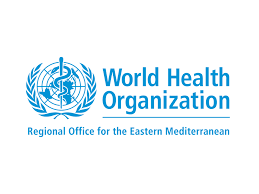The Federal Ministry of Health of Sudan declared a cholera outbreak on 12 August 2024 after confirmation of samples from Kassala State, which has been reporting suspected cases since 22 July 2024. Fuelled by heavy rains and flooding, overcrowding and lack of access to clean water in displacement sites and within communities, the outbreak has spread to 84 localities in 11 states, with over 51 300 cases and 1359 deaths reported as of 18 January 2025.
As part of the response to the cholera outbreak, the Federal Ministry of Health, with support from WHO and UNICEF, has conducted oral cholera vaccination campaigns in 8 states, reaching 7.4 million people. These include simultaneous vaccination campaigns in bordering localities of Sudan and South Sudan, in collaboration with the South Sudan health authorities, to respond to the outbreak and protect populations on both sides of the border.
WHO is supporting the outbreak response through comprehensive health interventions that include strengthening surveillance, deployment of rapid response teams for swift investigation of alerts, case management and improving water quality, sanitation and hygiene services in displacement sites and other at-risk communities. WHO has set up 12 cholera treatment units for the management of severe cases in 6 states where over 5700 patients have received treatment since 5 September 2024. WHO has also supported the establishment of 44 oral rehydration points (ORP) nationwide for the treatment of mild to moderate cases – out of 93 functional ORPs nationwide.
WHO experts are conducting water quality monitoring and supporting the distribution of water treatment pills in health care facilities and cholera treatment units. In addition to supplies prepositioned at high-risk states, over 180 metric tons of cholera kits and supplies have been distributed to affected states through crossline and cross-border routes. An additional 154 cholera kits are in the pipeline for shipment to Sudan.
“WHO is at the forefront of the cholera response, with our teams working alongside the government health system for the early detection and timely management of cases. Our supplies are assisting a quick response to prevent severe cases and deaths,” says WHO Representative to Sudan, Dr Shible Sahbani.
The cholera outbreak is occurring at a time when Sudan’s health system is severely weakened by the conflict that has been raging in the country for 21 months, causing severe access constraints and security risks that limit the ability of the health emergency response to reach people in need, as well as render health care workers and patients unable to safely access health facilities. Health care workers go for months without payment, and there is an extreme lack of medical supplies and a shortage of cash to run operations. Large numbers of people continue to be displaced from different states, leading to overcrowding, further limitations in access to food, safe water, hygiene and sanitation, and a conducive environment for contamination and the spread of cholera.
Clashes in October in Al Jazirah State led to the displacement of close to 400 000 individuals, mostly into Kassala, Gedaref and River Nile states, leading to an increase in the number of reported cholera cases after a slightly declining trend.
WHO provides direct operations support, incentives, supplies and technical support, including monitoring and evaluation, to the 12 cholera treatment units it has set up in affected states. The Organization also provides supplies to most of the 70 cholera treatment centres and units operated by the Ministry of Health, Médecins Sans Frontières (MSF) and other health partners.
Dr Sahbani highlights that the situation in Sudan “is a perfect storm for diseases like cholera, which prey on the impoverished and displaced – following the trail of conflict, displacement and poverty. At the end of the day, peace is the only answer.”
WHO remains committed to leading the response to the cholera outbreak and meeting the urgent health needs of Sudan’s people and calls for unrestricted and safe access to all areas of the country to be able to reach everyone, everywhere. We are able to deliver on our commitment through the financial contribution of our donors: Gavi, the Vaccine Alliance, the European Union Commission, United Nations Central Emergency Response Fund (CERF), United States Agency for International Development (USAID), UN Multi-Partner Trust Fund Office (MPTF), and the Governments of France and Germany.
Distributed by APO Group on behalf of World Health Organization – Regional Office for the Eastern Mediterranean.


